Did you know that ‘Good Bye, Lenin!’ (2003) is the most famous recent German film? What kind of storytelling choices are behind this story, which fascinated audience and critics alike?
Here I want to show you how clear storytelling – applied to each storyline – amounts to an expertly perfected structure. I will also explain how unplaiting single narrative strands in a script can help your own writing. This kind of storytelling means to not only work with one main character, one conflict, one goal and one set of plot points, but – in the case of ‘Good Bye, Lenin!’ – with four storylines with respective main characters, conflicts, needs and wants, several twists as well as an individual insight and realization.
‘Good Bye Lenin!‘ is the story of an East-German family around the fall of the Iron Curtain. It tells how individual family members deal with the father’s Republikflucht (escape from the GDR) to the West several years ago (backstory) and how the remaining family deals with the mother suffering a heart attack and falling into a coma for several months, and then waking up to a new world.
The tragicomedy is told from Alex’ point-of-view, his sister Ariane’s as well as their mother Christiane’s and creates therewith several storylines:
To freshen up your memory, here’s the film’s trailer:
Alex wants to save his mother’s life
In the main storyline Alex pursuits the goal to save his mother’s life. Since any agitation could lead to a new attack she must be spared any kind of excitement. And so Alex enacts the ‘idyllic’ socialist world. The graphics display this main arc in green.
At the beginning Alex is a young man mainly satisfied with his life. This means there is quite an extend to his fall in the story. In the graphics you can see that the green line starts very high up:
But things change very quickly for Alex when his mother Christiane has a heart attack and wakes up from a coma only months later. The doctor tells Alex that his mother is very sick and needs to be spared any kind of agitation. This inciting incident in the plot lets Alex’ line take a plunge:
Suddenly Alex is challenged: How can he spare his mother excitement and agitation when in the meantime the Berlin wall came down – especially since his mother is a loyal and true socialist.
Alex comes up with a plan that can only be taken seriously in a comedy and that makes him a comic hero: He conceals the political change and its profound social consequences from his mother and also persuades his sister Ariane as well as all friends and acquaintances to play along in the preservation of the GDR within the walls of their plattenbau flat. Now Alex has a want: to upkeep the ‘old’, musty GDR-world for his mother. And at first his plan even works: his mother Christiane believes him and therewith it is possible for Alex to turn the first plot point towards the positive:
But at his mother’s birthday party – at the story’s midpoint – his enactment gets busted for the first time: when Christiane looks out the window she can see how a huge Coca-Cola Banner is being put up. The over-dimensional advertisement simply appears in her range of vision and all Alex can do to prevent the dawn of the new reality is to shield his mother even further from the outside world. But with his mother’s recovery her demands, her need for information and her urge to move increase day by day. It becomes more and more difficult for Alex to keep up his socialist farce – therefore the narrative arc now tilts downwards:
But Alex is undeterred and follows his want. (For a comic hero like Alex it is quite typical to follow his goals seriously which objectively seems completely impossible.)
He goes to great pains to get his mother her favourite GDR Spreewald pickles. He even fulfils her wish to watch the news on TV and shoots a fabricated version of ‘Aktuelle Kamera’ (GDR news program) with this friend Denis.
But Christiane decides to stop her imprisonment: while Alex is sleeping and Christiane is unsupervised for the first time, she leaves the room and flat by herself. For the first time she sees how everything around her has changed. When the dismantled Lenin-statue is flown off by helicopter, she senses that since her awakening something has fundamentally changed…
So actually the second plot point would be a low point. But thanks to a brilliant idea (Alex’ as well as the writers’), Alex is able to save the moment: he reinterprets history by representing the opening of the Wall as a triumph of socialism over the capitalist West: in a fabricated news show he lets Wessis (West Germans) pour into the GDR, which moves Christiane to tears. This makes it possible for Alex to give the second plot point a positive twist:
Alex is moving closer to his goal again.
In the climax Christiane suffers another and more severe heart attack. She doesn’t survive this one. Despite all his crazy efforts Alex did not achieve his want – to save his mother’s life:
So there is no happy end for him or the audience regarding this storyline.
But as the main character of ‘Good Bye Lenin!‘ Alex hast two strands in the story: while the main storyline can be labelled his ‘want-line’, he experiences his need-line in form of a love-story:
Alex finds love through Lara
Alex’ need is to grow up and to explore the suddenly open world in front of him with all its exciting and new possibilities. This makes Alex’ want and need contradict each other – which is dramatically speaking very effective. His need demands from him to be his mother’s child and to make sure she survives – this means to stay in the world of his childhood out of love for his mother rather than grow up.
The turning points of this narrative strand reveal how classically this need-strand is constructed:
The storyline’s inciting incident happens during a political protest when Alex and Lara meet. The first plot point occurs when they become lovers – kissing for the first time at the hospital bed of Alex’ mother. During the midpoint they spend their first night together in an abandoned flat in East-Berlin. The young couple experiences their first crisis during Christiane’s birthday party: Lara accuses Alex to act irresponsibly with all his lies; structurally this constitutes the second plot point. The climax happens when Alex is told the truth about his father by his mother and is comforted by Lara. The love story’s happy end is now sealed.
Comparing Alex’ two strands one can see that his want-line’s three big turning points coincide with his need-line’s three big turning points interlinking the two storylines. It is Alex’ need (to take his life into his own hands) that triumphs over his want (to save his mother’s life):
You can also see that the red need-line compared to his green want-line runs pretty straight and even up to its second plotpoint. It basically runs steadily upwards until its second plotpoint – meaning that its love-strand runs for a long time without any turns. Alex’ and Lara’s fight at the birthday party finally makes the storyline change directions. This conflict is, however, only portrayed in one other scene within this strand but not further developed. This narrative shortcoming may be a good explanation that the love story in ‘Good Bye, Lenin!’ is not very memorable.
Alex’ mother Christiane has to face her life-lie
Alex’ mother is the secondary main character in ‘Good Bye, Lenin!’. Her storyline is based on Christiane having to face her self-delusion. ‘Having to’ already implies that her want and need contradict each other just like Alex’.
Her grand lie is that she told her children their father left them all for another woman in the West. But the truth is that Christiane and her husband planned their escape together – she and the children were to formally apply for a permission to leave the GDR and follow Robert to West-Germany. But Christiane stayed in the GDR out of fear that the Stasi would take away her children. After a heavy depression she began to commit to socialism and deny the past. That’s her backstory.
Christiane is proud to be awarded by the party for her socialist dedication – this establishes the extend of her fall at the beginning of the story. Just as she’s on the way to the ceremony she discovers Alex participating in an oppositional protest (where he meets Lara). Seeing her son protest against East-German socialism shocks Christiane so much that she suffers a heart-attack. This provides the inciting incident to her storyline.
Christiane spends the next eight months in a coma oblivious to what’s going on around her: the Berlin Wall crumbles and falls and the whole GDR is about to dissolve. When she finally wakes up her son pretends that nothing happened. He’s desperate to prevent any new anxiety which could be life-threatening considering Christiane’s condition. Psychologically it is quite interesting that she’s way too willing to follow Alex’s enactment enabling the comic premise. Alex’ want, to keep up pretence, therefore coincides with Christiane’s want to keep up her big lie. This explains why she doesn’t question her son’s unusual behaviour, after he takes her back home (first plot point).
But at the midpoint of the storyline when Christiane leaves her room and flat for the first time she hardly recognizes her neighbourhood. She can no longer stay in denial regarding what’s going on when the Lenin-statues comes flying by. Her life-lie is about to dissolve just like the GDR around her – and therewith her want: the line falls straight down.
In the following scenes Christiane starts to change her mind: dramatically speaking she lets go of her old want and makes her need her new want. She re-defines her goal and actively seeks the truth:
This becomes obvious when at the storyline’s second plot point she finally reveals her well-kept secret over decades and tells her children Alex and Ariane that she and her husband Robert planned their escape together. For Christiane this revelation means that she’s one big step closer to her new life goal.
Dealing with her inner need unravels Christiane in such a way that she has to go back to hospital. Despite her poor condition she even faces a reunion with Robert who visits her in hospital. Even though the scene constituting Christiane’s climax is set within the film’s OFF, it is clear that her need (and now want) is now fulfilled.
Several days later Christiane dies from her second heart attack. And still her storyline has a happy end: Christiane has taken the chance to ask her family for forgiveness and can now – at peace with herself – go.
As typical of a tragicomedy ‘Good Bye, Lenin!‘ basically deals with serious issues. This doesn’t just apply to Christiane’s story, but also to Ariane’s narrative strand:
Alex’ sister Ariane wants to create a life with her own family
Alex’ sister Ariane also pursuits her own goal and therewith has her own storyline: She wants to set up an independent life for her own little family.
Ariane longs for a ‚complete‘ family. Ariane’s wound is losing her father, which occurs in the backstory but is also the inciting incident of her storyline. Ariane tries to (unconsciously) compensate her father’s absence by starting her own family. It is no coincident that the writers Bernd Lichtenberg and Wolfgang Becker decided that Ariane already has a child. (Looking at the storyline of each character one notices many of these character-enriching details.) Obviously Ariane’s first attempt to fulfil her dream of a ‘complete’ family with partner has failed. Therefore her conflict-line lies between her old and her desired new family.
At the storyline’s first plot-point Ariane meets the ‘Wessi’ Rainer. Rainer becomes Ariane’s new boyfriend and together they dream of their own family including their own home, baby etc. Ariane’s line goes up.
But at her midpoint Ariane accidentally runs into her father without him recognizing her. Ariane is thrown back to having to deal with her old wound. We can sense that her concealed need lies in finally receiving her father’s love that she has missed for so long. The rekindling of her need lets her desire for her own little family take a backseat for a while.
But this changes when at the second plot point she discovers that she’s pregnant with Rainer’s child. This gets her almost to the finishing line of her goal to have her own family.
At the end her childhood trauma catches up with her again: seeing her father in hospital (climax) she runs away from him. The graphics show that Ariane’s storyline finishes prematurely with this scene. The question whether she’ll be able to overcome her pain with the help of her own family and grow remains unanswered. Because to be truly happy she has to clear up her (new) relationship with her father: all her anger towards him, which has been building up since her childhood, is based on her mother’s lie. Blaming him for just leaving and abandoning his family becomes obsolete. Instead Ariane is now forced to see her father not with her mother’s eyes but with her own. This first time she doesn’t rise to the challenge, which also entails a coming of age, or lets the opportunity to reconcile with her father pass by for now.
At this point one can only speculate why the writers have let this storyline (deliberately or unintentionally) have no real closure (e.g. through a suggestion how the relationship between Ariane and her father could develop beyond the end of the film). Maybe there has been a final scene for this strand in the script, which – for whatever reasons – didn’t make it into the (final version of the) film.
The unrealized storyline: Alex’ friend Denis seeks recognition as a film director
Alex‘ friend Denis also pursuits his own goal in ‘Good Bye, Lenin!‘: He wants to be discovered as a film director. Unlike the other four storylines Denis’ story has no arc since there are no turning points and no development of Denis’ character.
Why did the writers decide not to dramatize this storyline? I think it is because Denis is not part of the Kerner family and his goal is unlinked to those of Alex, Christiane and Ariane.
The main function of the Denis strand rather lies in comic relief which contributes greatly to the genre-defining comic narrative tone of voice.
Storyline interaction
In general all strands all thematically linked and affect each other. All storylines tell how Alex, Christiane and Ariane respectively try to overcome Robert leaving them. This allows a similar extend of a dramatic hero’s fall for each character to begin the story with.
The strand intersection points are the film’s key scenes. In these scenes the turning points of several storylines coincide:
For example, the political protest scene unites the inciting incidents of Alex’ need-line (he meets Lara) as well Christiane’s storyline (she suffers a heart attack).
The scene where Alex and Lara kiss for the first time at Christiane’s bedside (and therewith become lovers) is also the scene where Christiane comes back from her month-long coma.
At the story’s structural midpoint, Christiane’s birthday party, Christiane’s recovery begins to overwhelm Alex (Alex’ want-line) and at the same time Lara and Alex experience their first fight (Alex need-line).
What do the graphics say about the general storytelling of ‚Good Bye, Lenin!‘?
First of all it’s very obvious that the first act is over-proportionally long: Christiane is in a coma for eight months. During that time massive social changes happen and Alex life changes along with them. This needs some narrative time. After the overall story’s / film’s structural midpoint a visible dramatizing of the plot begins:
One of the big narrative qualities of ‚Good Bye, Lenin!‘ is that not only Alex’ main plotline but also the two secondary plotlines ‘Christiane’ and ‘Ariane’ each have a Want and a Need. Furthermore all three storylines’ Want and Need are in conflict with each other providing the characters with dilemmas.
It is especially noticeable that the three storylines’ (Alex, Christiane, Ariane) inciting incident and first plot point ‘contradict’ each other: While all inciting incidents are negative and their narrative arcs go down, all first plot points turn positive. This is quite unusual because normally the inciting incident sets up the first plotpoint and therewith ‘announces’ whether the plot will continue to rise or fall.
In “Good Bye, Lenin!” a conflict is established but not further escalated because it is picked up again with the entire story’s turn into the positive. The audience gets the impression that each character gets a grip on their problem with the first plot point, which straightens everything out.
But this changes with the midpoints: because all midpoints turn their storylines into the negative in a kind of delay. They catch up on what the first plotpoints ‘missed’ to do and take over their job – to dramatize the plot.
This contrary seeming storytelling is based on ‘Good Bye, Lenin’s!’ genre of tragicomedy or dramatic comedy: to establish a comic ease or feel-good-factor in the first half of the story, the incited drama is counterbalanced by the positive first plot points. Only the second half of the story turns to an existential-emotional narrative tone-of-voice continuing until the end of the film.
Overall – including Alex‘ need-line – there are two happy endings and two unhappy endings. This leads to an ambivalent end for each of the three main characters, which creates an authentic and emotionally satisfying effect for the audience:
Despite his super-human effort for his mother Alex does not manage to save her life. But he grows up along the way and finds love in Lara. Christiane dies from her heart attack but she was able to become reconciled with her husband and find peace. And Ariane cannot (yet) forgive her father but she has now her own family.
‘Good Bye, Lenin’!‘ owes its overwhelming reception the way the story of a family is told from different perspectives: son, mother, daughter. The resulting storylines link three main characters, several secondary characters, a total of 20 turning points and four endings to a story.

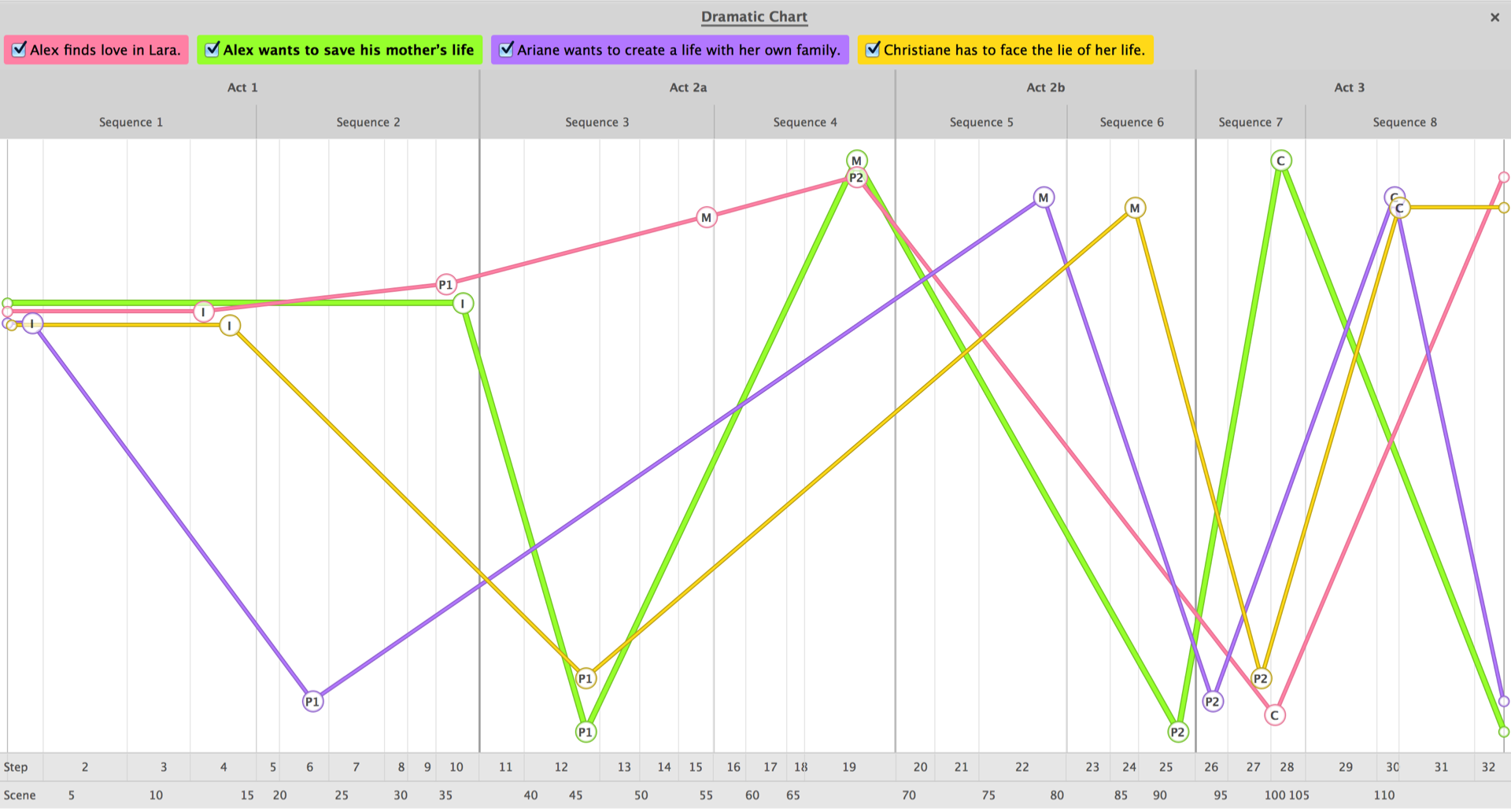
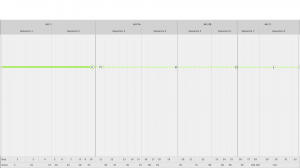
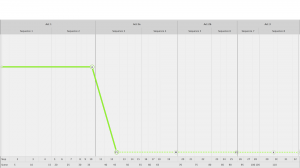
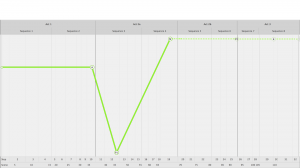
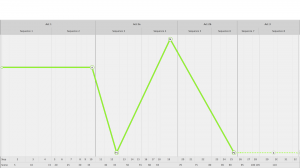
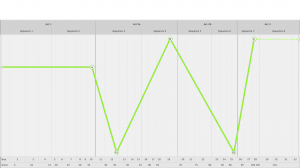
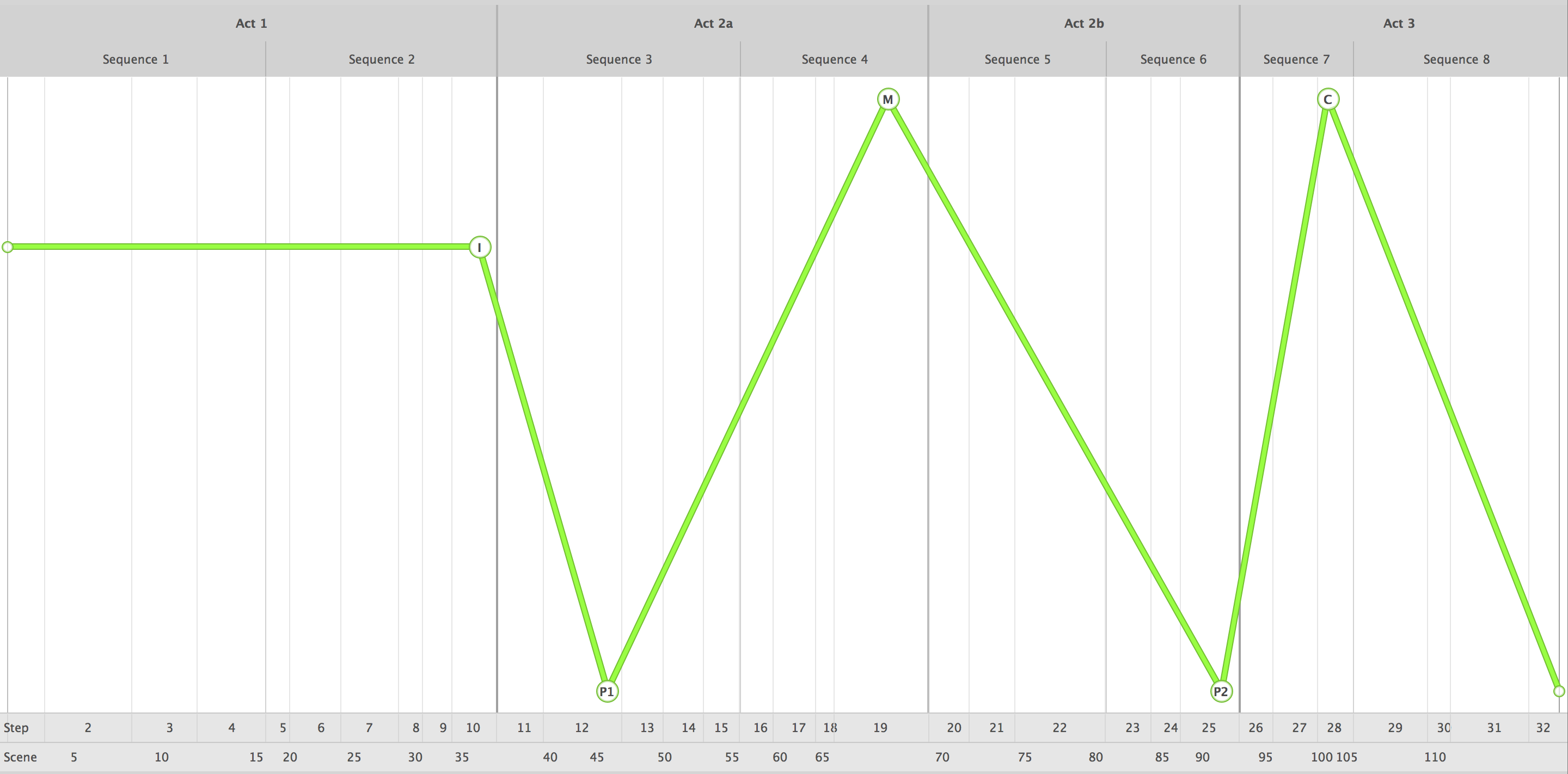
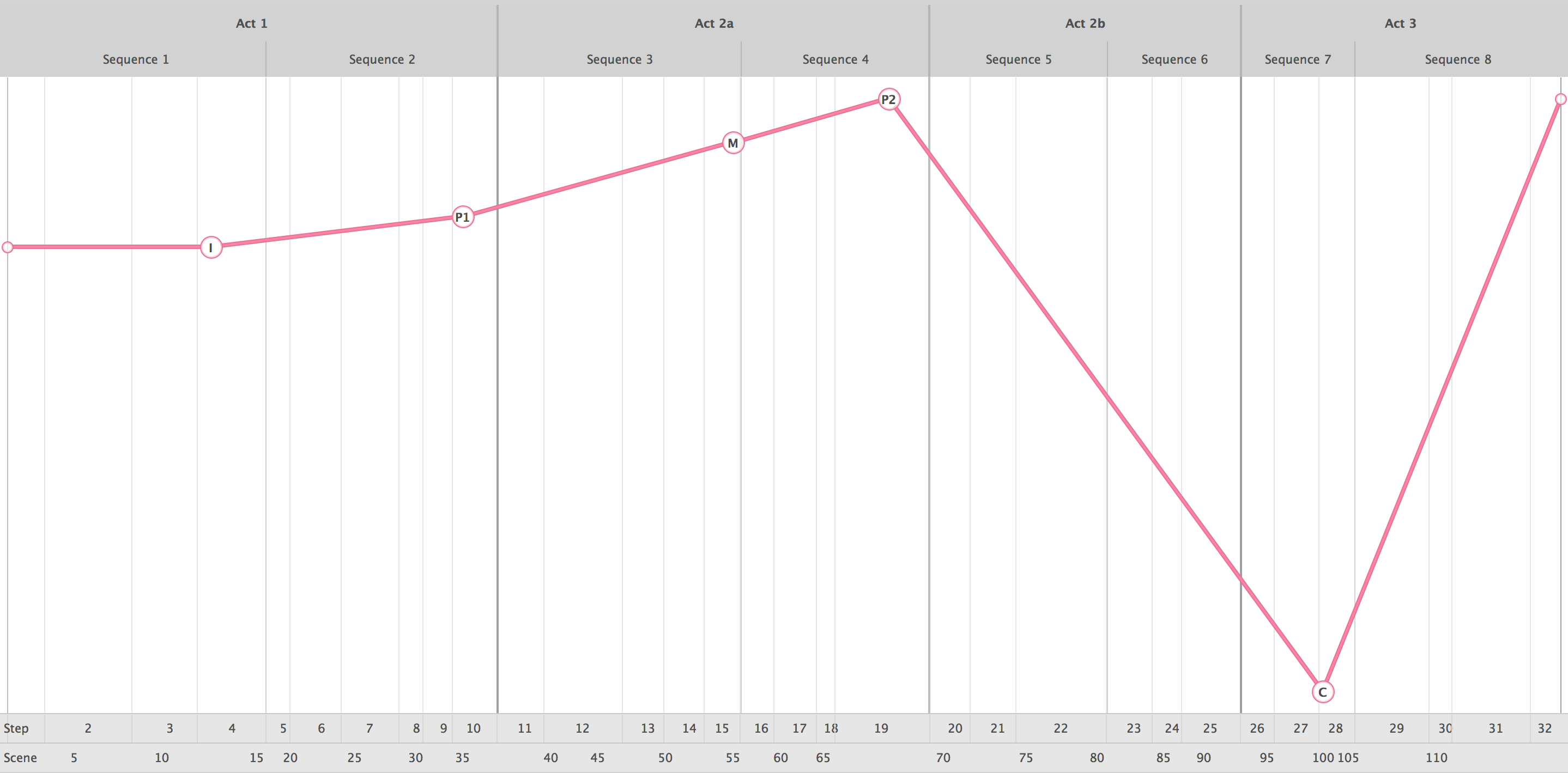
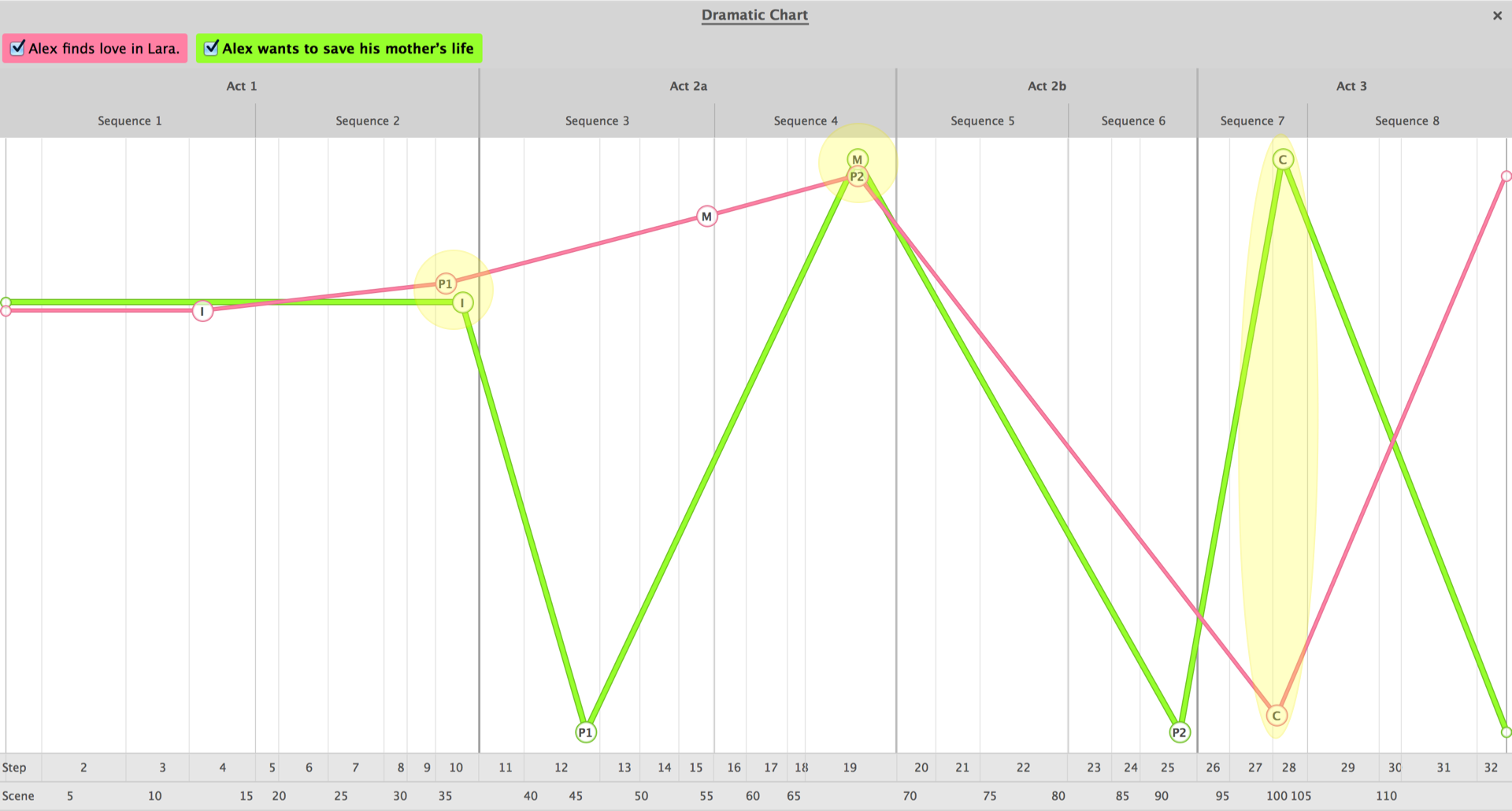
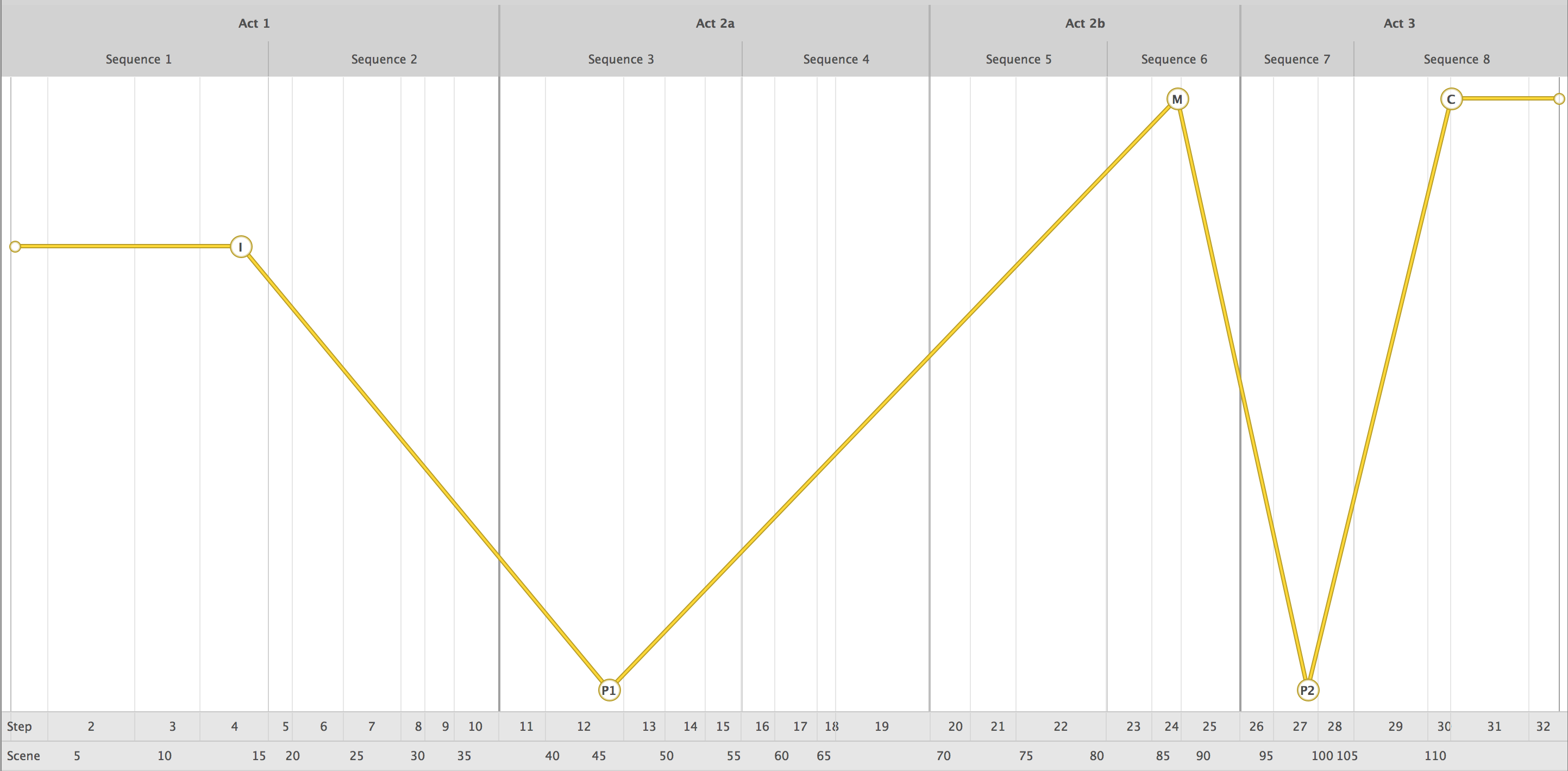
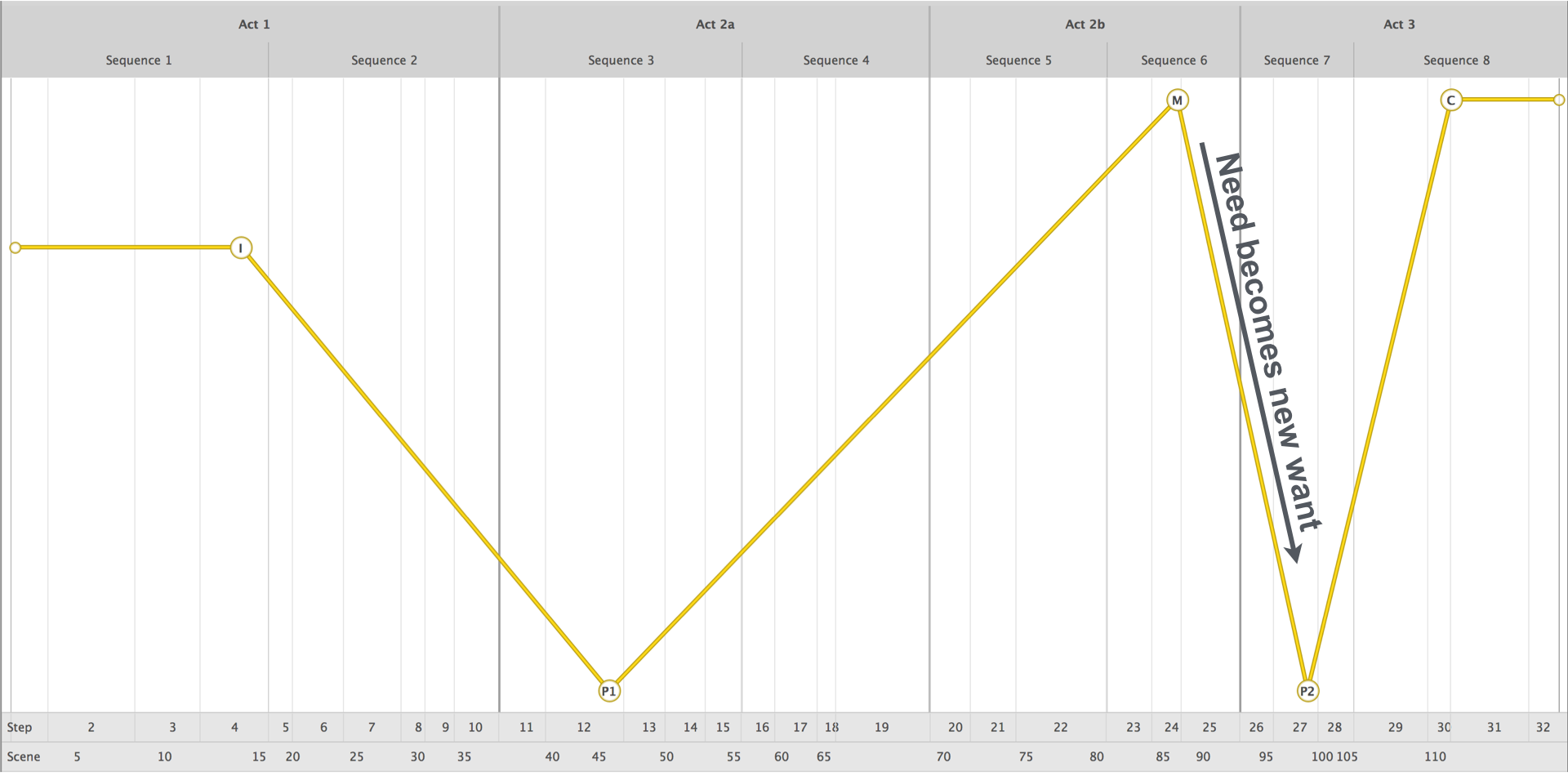
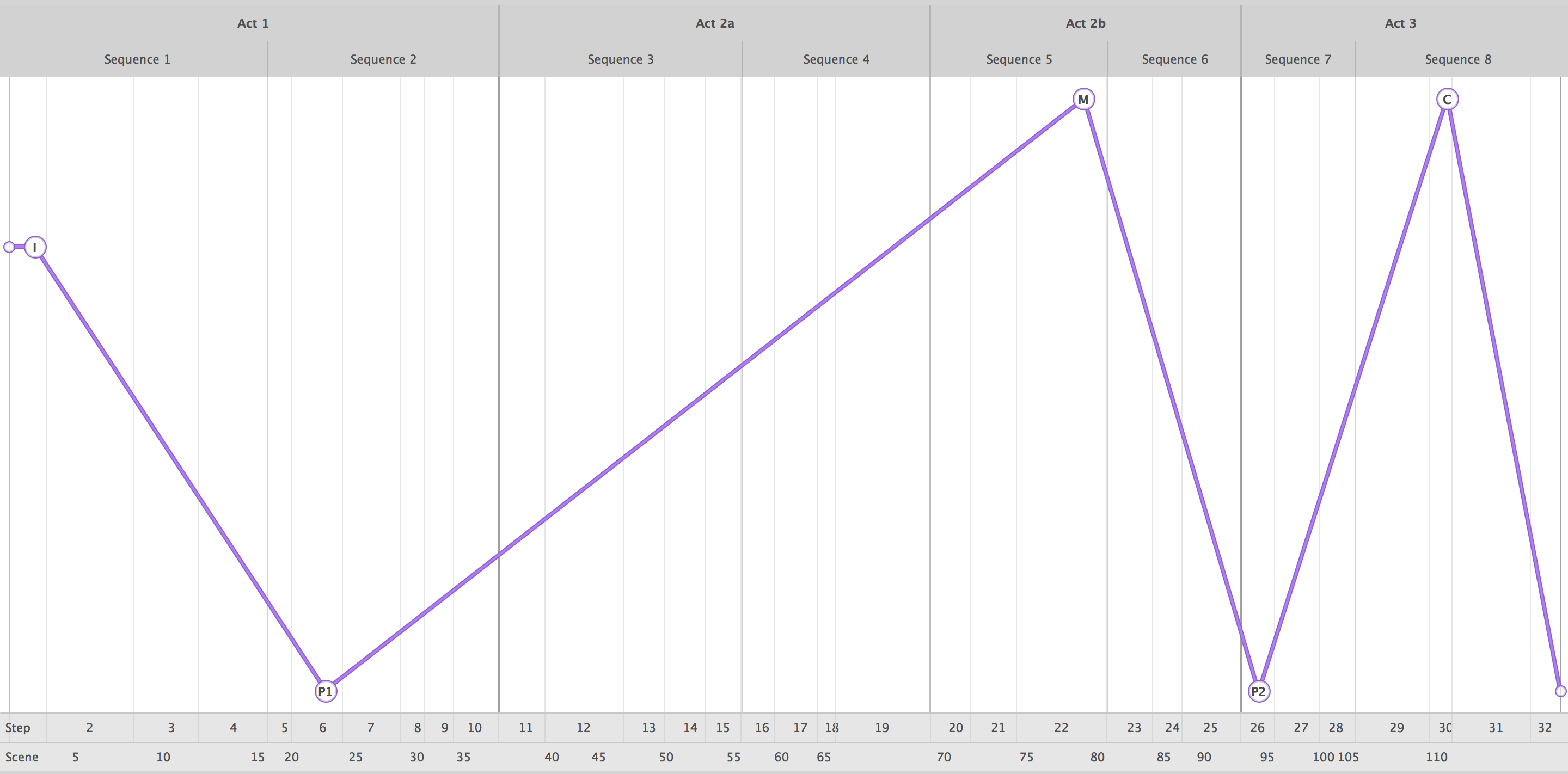
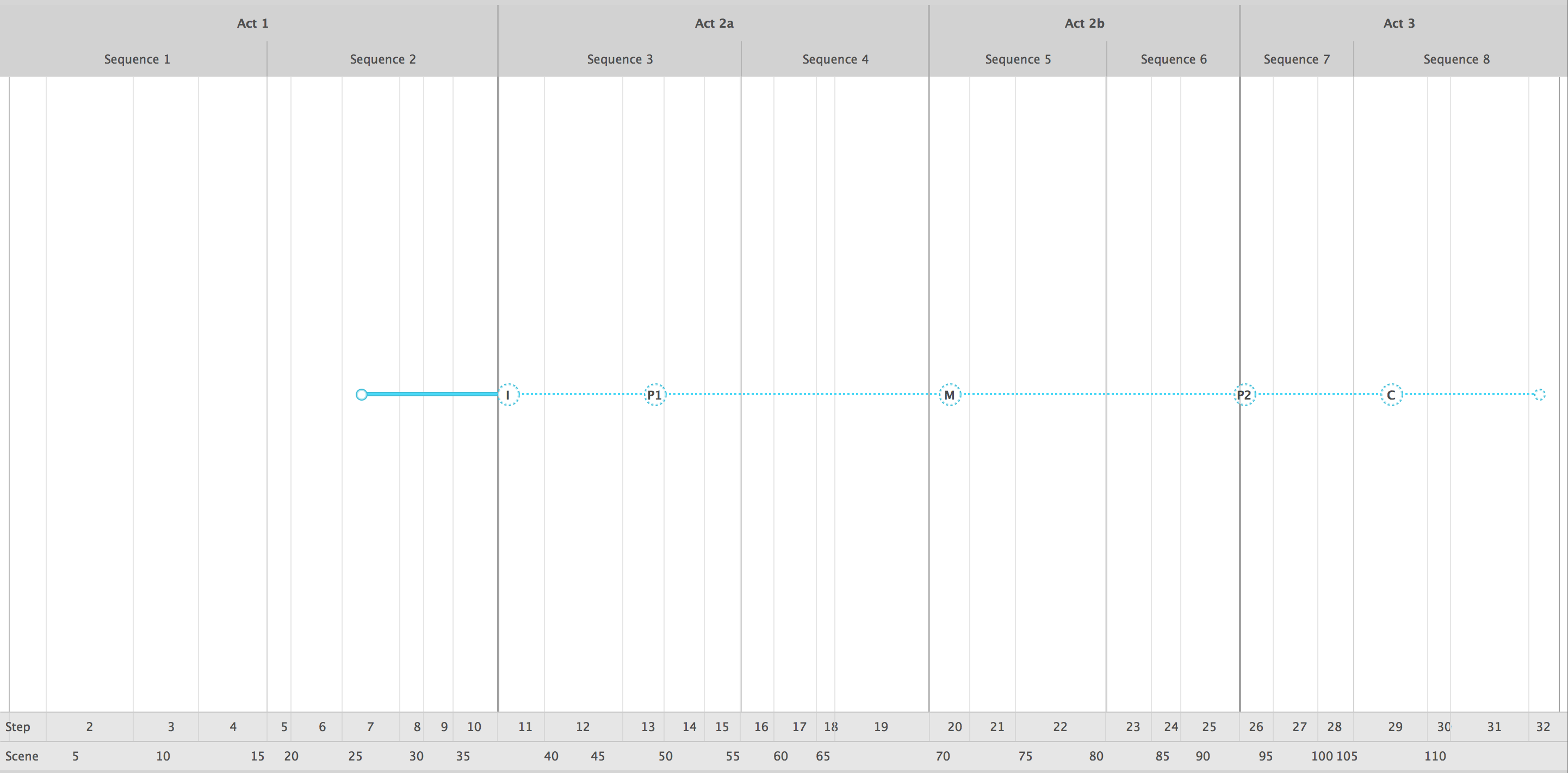
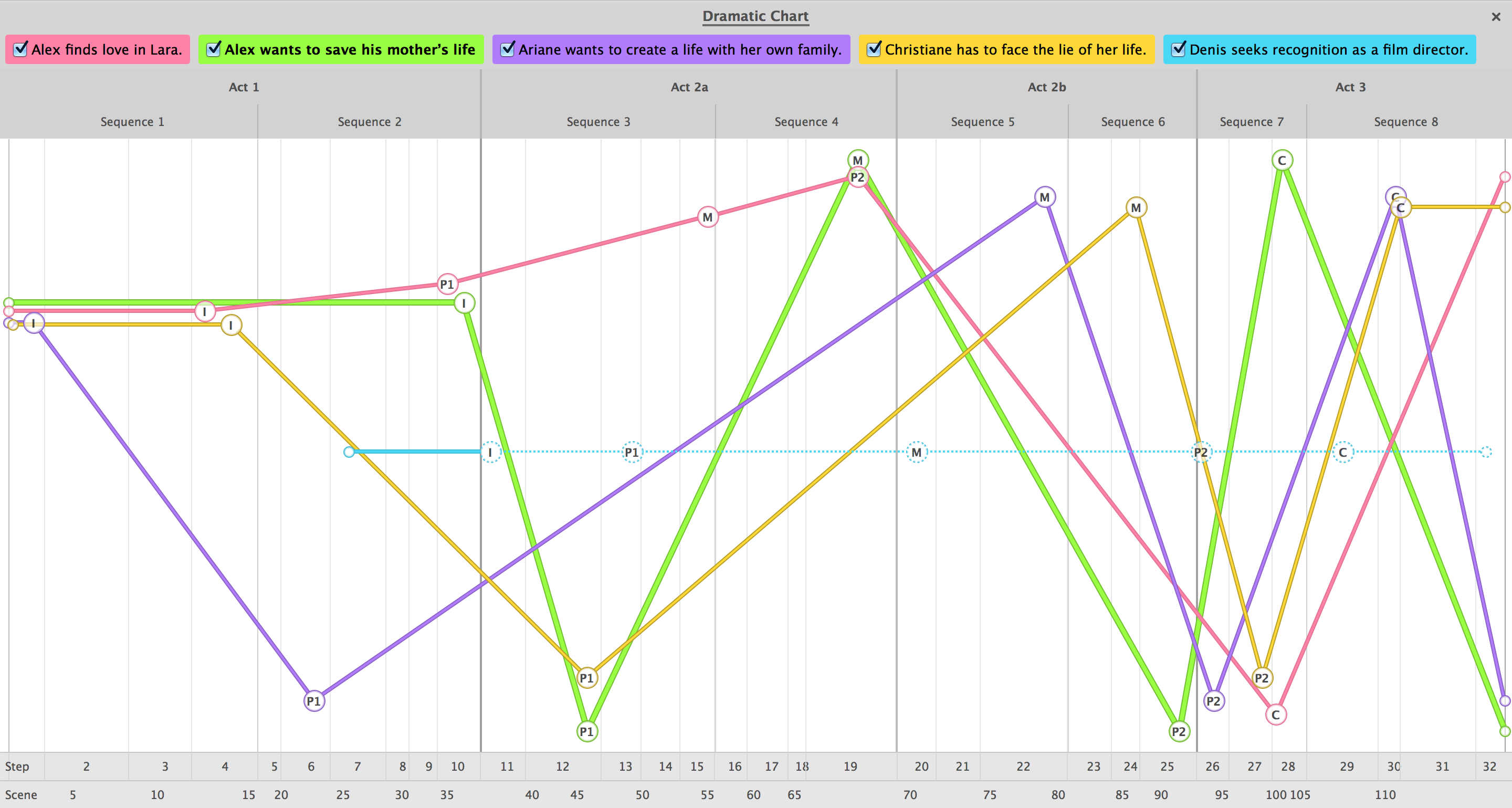
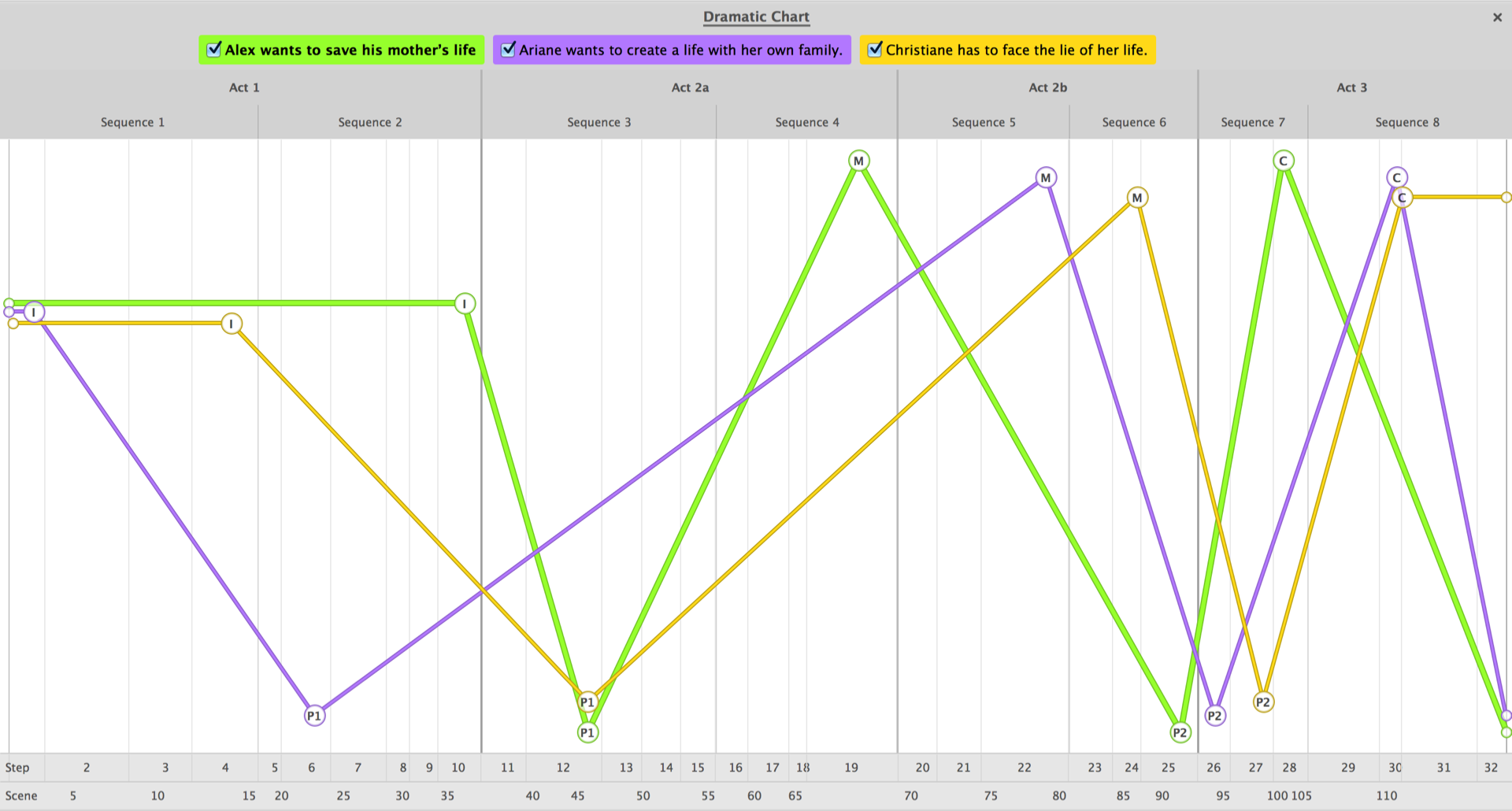
No comments yet.